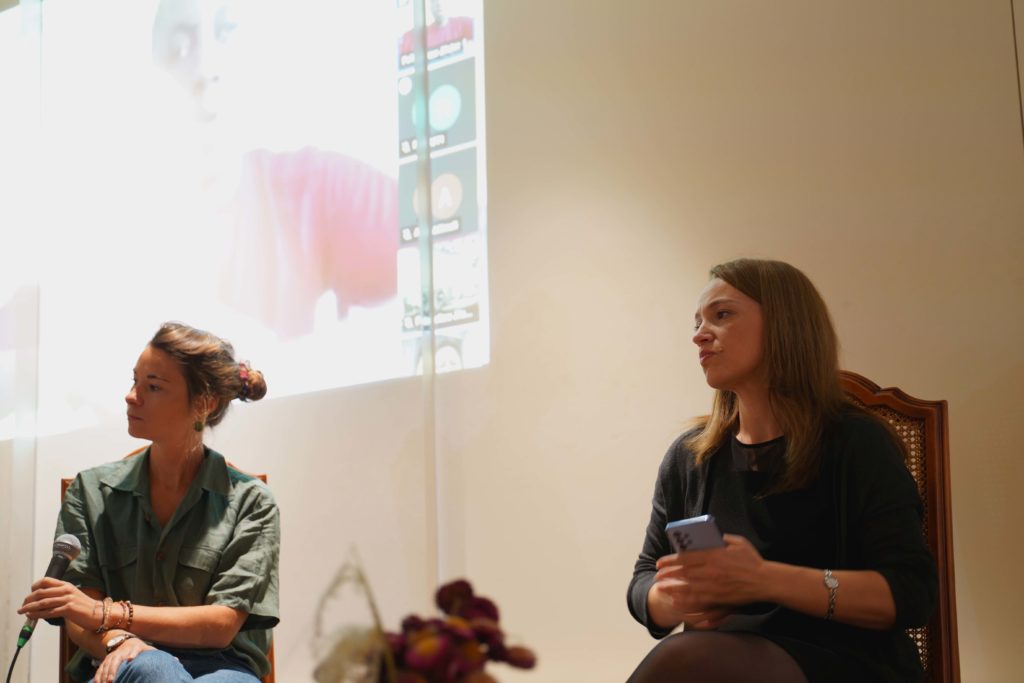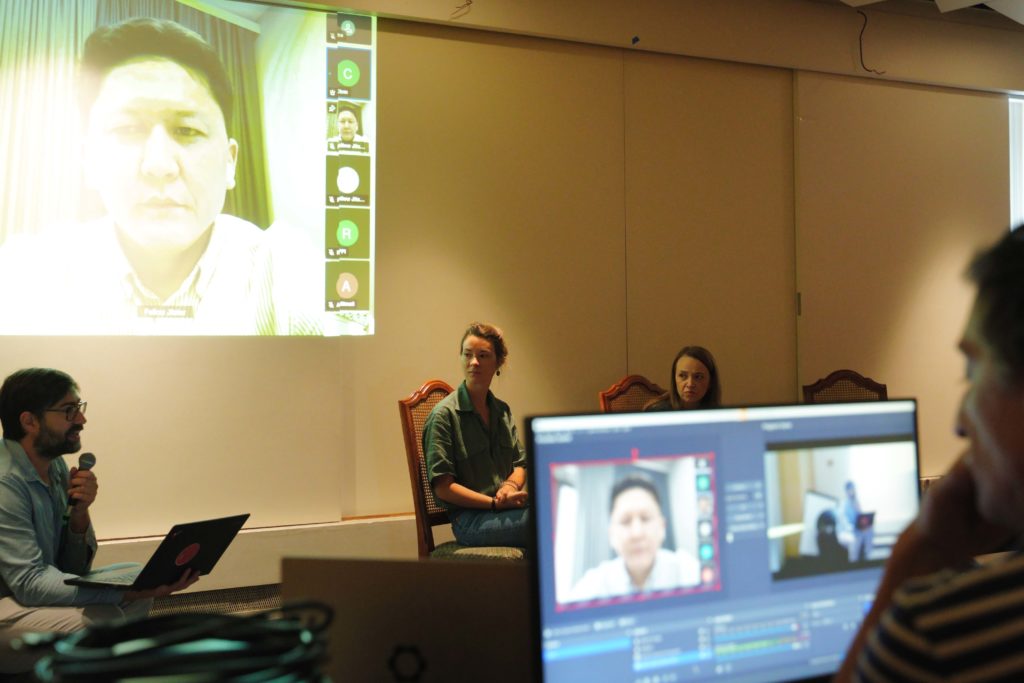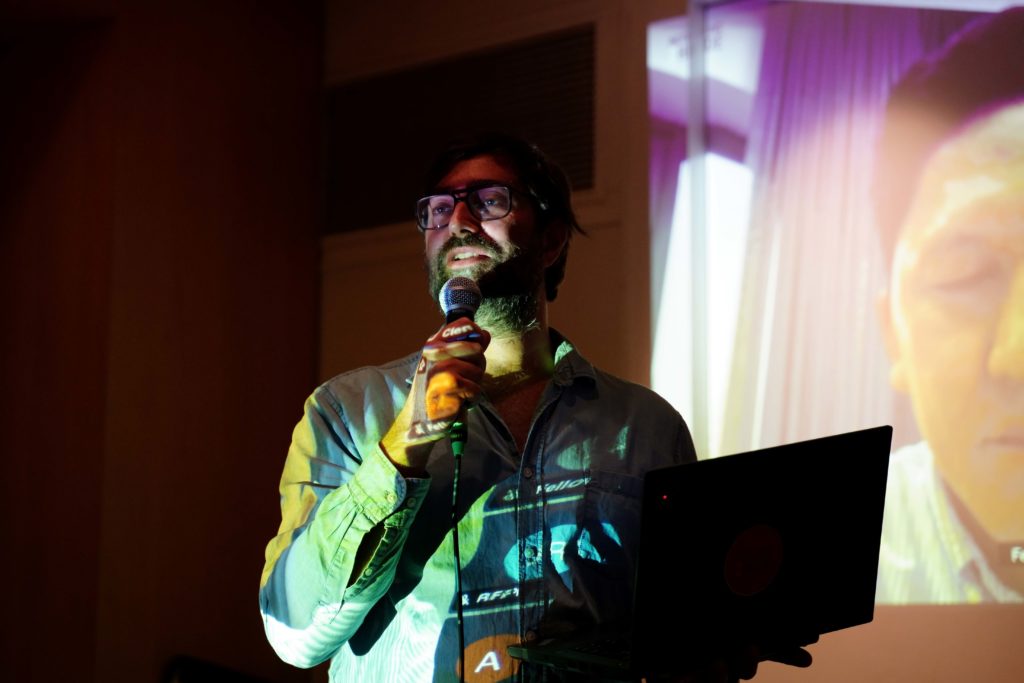What digital solutions are there when the freedom of information is under threat? This was the question we tried to answer at the first round table organised by Nothing2Hide. It took place on Friday 13 October. Here’s the replay and here’s what we suggest you take away from this discussion.
We had the pleasure of sharing the experiences of four of our partners about their needs in areas where this freedom is at risk.
In Ukraine, protecting people in occupied areas
Angela Gramada had come specially from Romania to present the Yak Vdoma residence set up by CFI and which hosts journalists, mainly Ukrainians, in Bucharest. These journalists then have up to six months to carry out their projects, from investigations to books, in a more serene living context.
When it comes to digital security, their needs are manifold:
- Ukrainian journalists, in order to collect and transmit information, must use ingenuity and train themselves not to endanger themselves, but above all not to endanger the people, particularly those living in Russian-occupied areas of Ukraine, who provide them with information and those who disseminate it.
- For example, it is difficult to convince journalists, but especially those with whom they exchange information, to stop using Telegram, a not-so-secure application, which is nevertheless the benchmark in this geographical sector.
- Their needs are also material. Digital security also means using online storage locations, so that sensitive information is not left on seizable material. Angela told us about the experience of a journalist who took six days to reach the unoccupied zone. To take her work with her, she emptied her computer and phone, stored everything on a cloud, and was able to retrieve it all in the unoccupied zone. A rich idea given the number of police roadblocks she had to cross.

In Afghanistan, between short-wave and adaptability
In Afghanistan, Radio for Peace International (RFPI) allows shortwave radio programmes to be broadcast. Shortwave means two things: that the transmitting location can be thousands of kilometres away and that it is very difficult to jam the broadcasts.
The journalists involved in this project must, however, for their own safety and that of their sources, communicate securely.
The challenge in Afghanistan is not to get people to change their habits by using new tools, because these people have always, given the context, learned to adapt. Nothing is stable here. The hardest thing is access to the Internet.
Sylvain Clament, president of RFPI
We were able to discuss with him the importance of exchanging and transmitting information using encrypted messaging: Protonmail, Element and Signal for example.
In Kyrgyzstan, the strategy of speed to protect activists and citizens
In Central Asia and more specifically in Kyrgyzstan, our partner Internet Society Kyrgyzstan Chapter(ISOC) has created Tech4Society, an emergency digital assistance programme. It is derived from ours, Tech4Press, aimed at journalists. In this region, many activists and other civil society players are under surveillance, threatened or even imprisoned. They can call on Tech4Society for a rapid response. One of Tech4Society’s emblematic cases was, for example, the analysis of the hard disks of a Kyrgyz journalist.

In DRC, VPN as a response to censorship
In the Democratic Republic of Congo (DRC), freedom of information is all the more under threat during elections, which crystallise tensions. During the last two, 2016 and 2018, there were several blackouts (up to two weeks) and in particular to control access to social networks, one of the main means of getting information, when street protests gained momentum. Akilimali Saleh Chomachoma, a journalist and member of the Blogoma collective, explains the aims of such action: “to prevent people from getting together to demonstrate”, “to prevent the dissemination of information about police actions (or even blunders)”, and “to frighten people by showing them that the State controls the Internet”. These concerns are at the heart of current events as the next presidential election takes place on 20 December.
He also told us about possible solutions to get around this censorship:
- The use for border dwellers to use the networks of neighbouring countries, a limited method of course.
- Above all, the use of VPNs, which allow access to social networks
- Piguard, a plug & play censorship bypass tool, which we tell you all about here.

This round table was an opportunity to point out that digital security has many facets. It takes different forms depending on the context, the needs but a lot also depending on habits.
A big thank you again to Angela Gramada, Nurbek Arzymbaev, Akilimali Saleh Chomachoma and Sylvain Clament for shedding light on this thorny issue.

 Français
Français